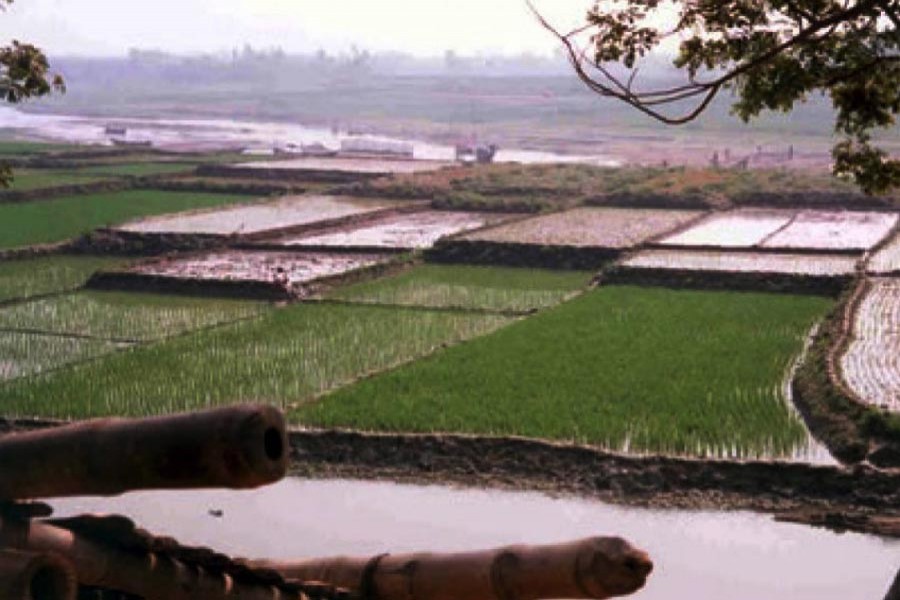Farmland acreage keeps shrinking unabatedly in Bangladesh and elsewhere in the Asia due to illegal encroachment on the one hand and acquisition or lease of land for development of economic units and other manufacturing and development initiatives on the other.
To address the issues, there are needs for pro-people and right-based land management, inclusive decision making and good governance, protecting eco-systems and regulating market choices.
Apart from these, there should be no institutional barriers and change should be brought in the individual habits, and attitudes of the decision-makers.
There is necessity of developing new institutional arrangements and approaches, even for civil society organisations (CSOs) and land rights activists.
Implementation of the existing laws and policies needs to be consistently enforced by the governments.
The above observations came at an international workshop styled Land and Water Governance in Asia: Resource-Sharing and Cooperation at Brac Centre Inn in the capital on Thursday.
Association for Land Reform and Development (ALRD) organised the event in association with ANGOC, Asian NGO Coalition for Agrarian Reform and Rural Development.
The two-day workshop was aimed at serving as a platform to enhance capacities of Asian CSOs working on food security and sustainable livelihood through protection of land and resource rights and smallholder agriculture.
Speaking on the occasion as the chief guest, Social Welfare Minister Rashed Khan Menon said land of indigenous and marginalised people is being acquired to set up economic zones (EZs) though there is a government policy not to use arable land for such purposes.
He laid emphasis on regional cooperation and coordination in the Asian region regarding the water-sharing issue.
Executive director of ANGOC Nathaniel Don Marquez said freedom of the civil society in politics is shrinking, what is evident in various ways.
"In many countries, human rights defenders and land activists get harassed and killed. The CSOs are subjected to torture and suppression. Without such a democratic space, advocacy work is significantly curtailed, and with that the hope for advancing land rights," he said.
Changing agrarian relations in a liberalised economy poses a major challenge for land advocates, Marquez said.
"This time, commercial interests of land are not limited to agriculture only- rather they are extended to mining, real estate development, industrial zones and tourism; all fight for the same land and water resources to which livelihoods of small farmers and fishermen are linked," he added.
Chairperson of ALRD Khushi Kabir chaired the event.
Bangladesh Environmental Lawyers Association (Bela) chief executive Syeda Rizwana Hasan presented a paper on Land Grabbing, Trans-boundary Water Sharing and Rights of Upper and Lower Riparian Communities.
Executive director of ALRD gave address of welcome.
Representatives from Nepal, Cambodia, Philippines and Indonesia and Bangladesh participated in the workshop.


